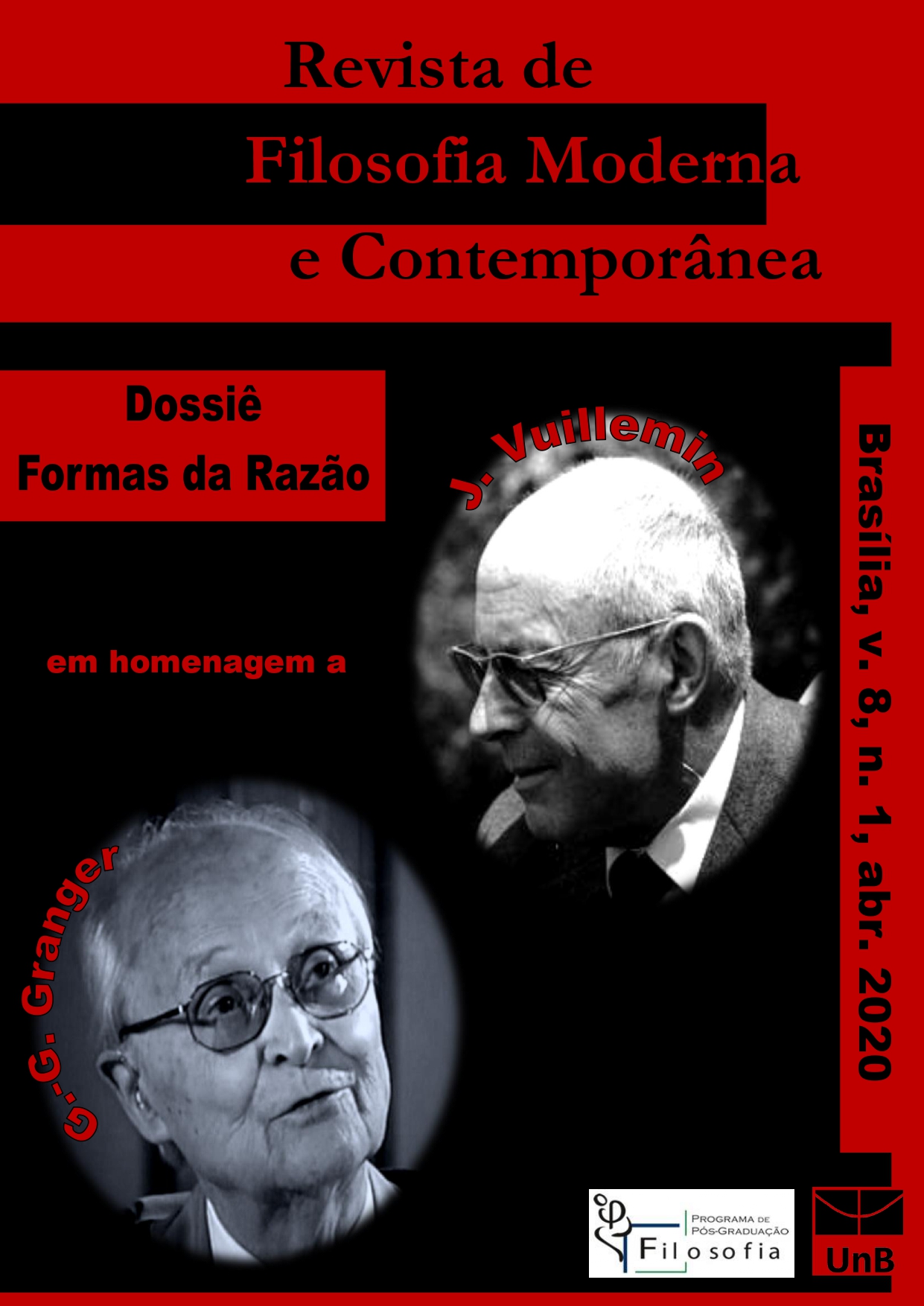Enlarging the Conception of Science is to Build Bridges or Chasms? On the Philosophy of Science of Passeron
DOI:
https://doi.org/10.26512/rfmc.v8i1.30425Keywords:
Passeron, epistemology of human sciences, historical sciences, PopperAbstract
Jean-Claude Passeron stresses that the rules of Popper’s normativism cannot be applied to social sciences, but only to natural sciences. For this reason, he suggests to enlarge the conception of science and rationality, so that it could also include social disciplines. However, from the perspective of a broader critique against Popper, this paper tries to show that natural and social sciences face common epistemic difficulties and solutions, thus, they should not be considered so distant. In addition, it intends to look to another possibility of approaching the question: accepting that there are many ways to describe the same reality. Perhaps the way to qualify social sciences as truly scientific is simpler than Passeron thought.
Downloads
References
CAMPBELL, D. “Blind variation and selective retention in creative thought as in other knowledge processes”. Psychological Review, v. 67, n. 6, p. 380-400, 1960.
CHALMERS, A. O que é ciência afinal? Tradução de Raul Filker. São Paulo: Editora Brasiliense, 1993.
DENNETT, D. Consciousness Explained. Londres: Penguin Books, 1991.
_______. A Perigosa Ideia de Darwin: a evolução e os significados da vida. Tradução de Talita M. Rodrigues. Rio de Janeiro: Rocco, 1998.
_______. Intuition Pumps and other tools for thinking. New York; London: W. W. Norton & Company, 2013.
GÓMEZ-TORRENTE, M. “Alfred Tarski”. ZALTA, E. (Ed.). The Stanford Encyclopedia of Philosophy (Spring 2015 edition). Disponível em: https://plato.stanford.edu/archives/spr2015/entries/tarski/. Acesso em 5 jan. 2017.
GOULD, S. J.; LEWONTIN, R. C. “The Spandrels of San Marco and the Panglossian Paradigm: A critique of the adaptationist programme”. Proceedings of the Royal Society of London, v. 205, n. 1161, p. 581-598, 1979.
HAACK, S. Filosofia das Lógicas. Tradução de César Augusto Mortari e Luiz Henrique de Araujo Dutra. São Paulo: Editora UNESP, 2002.
HUANG, Y. Dictionary of Pragmatics. Oxford: Oxford University Press, 2015.
KUHN, T. A estrutura das revoluções científicas. Tradução de Beatriz Vianna Boeira e Nelson Boeira. São Paulo: Editora Perspectiva, 1998.
LACOUR, P. “Critique de la raison symbolique et philosophie transcendantale”. In: _______. La nostalgie de l’individuel: essai sur le rationalism pratique de G. G. Granger. Paris: Libraire Philosophique J. Vrin, 2012.
_______. O conhecimento clinico: do desafio à s modalidades. (Notas de aula da disciplina de Tópicos especiais de Epistemologia do Programa de Pós-Graduação em Filosofia da UnB. 2016. Inédito).
LAKATOS, I. Falsificação e a metodologia dos programas de investigação científica. Tradução de Emilia Picado Tavares Marinho Mendes. Lisboa: Edições 70, 1977.
LECLERC, A. “Linguagem e natureza na gramática universal clássica”. In: MONTENEGRO, M. A.; PINHEIRO, C.; AZEVEDO, I. (Org.) Natureza e Linguagem na Filosofia. Fortaleza: Editora da UFC, 2008, pp. 13-35.
_______. “Princípios para uma semântica das línguas naturais: os clássicos e o novos”. Perspectiva Filosófica. Recife, 2009, v. 11, n. 30, p. 11-33, fev. 2008 ”“ jan. 2009.
PASSERON, J. C. O raciocínio sociológico: O espaço não-popperiano do raciocínio natural. Tradução de Beatriz Sidou. Petrópolis: Vozes, 1995.
PEREBOOM, D. “Kant’s transcendental arguments”. ZALTA, E. (Ed.). The Stanford Encyclopedia of Philosophy (Fall 2014 edition). Disponível em : https://plato.stanford.edu/entries/kant-transcendental/. Acesso em 18 jan. 2917.
POPPER, K. A miséria do historicismo. Tradução de Octany S. da Mota e Leonidas Hegenberg. São Paulo: EDUSP, 1980.
_______. “A evolução e a árvore do conhecimento”. In: _______. Conhecimento Objetivo. Tradução de Milton Machado. Belo Horizonte: Itatiaia, 1992, p. 234-56.
_______. A lógica da pesquisa científica. Tradução de Leonidas Hegenberg e Octanny Silveira da Mota. 16ª edição. São Paulo: Editora da Universidade de São Paulo, 2008.
Downloads
Published
How to Cite
Issue
Section
License
Copyright (c) 2020 Journal of Modern and Contemporary Philosophy

This work is licensed under a Creative Commons Attribution-NonCommercial-NoDerivatives 4.0 International License.
Copyright for articles published in this journal is retained by the authors, with first publication rights granted to the journal. By virtue of their appearance in this open access journal, articles are free to use, with proper attribution, in educational and other non-commercial settings.


